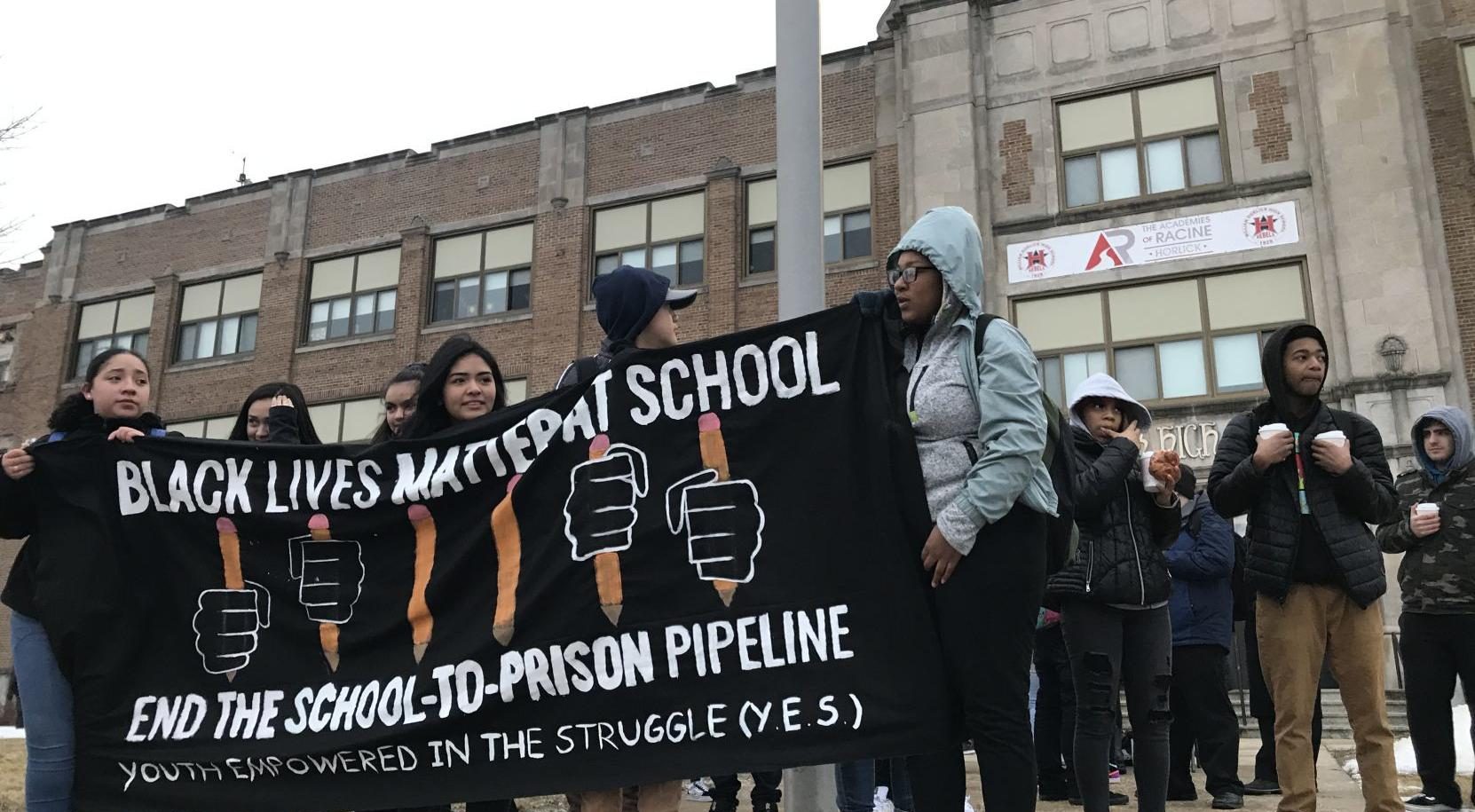
School resource officers (SROs) and zero-tolerance policies contribute significantly to the problem of the school-to-prison pipeline. Schools typically employ law enforcement officials as SROs, and in schools with SROs, arrests, and referrals to the criminal justice system increase by five times when compared to schools without SROs (Petteruti, 2011). Notably, most of these arrests and referrals occur for low-level offenses, such as disorderly conduct rather than for any sort of violent conduct (Petteruti, 2011). Sadly, regardless of whether for a low-level offense, first-time arrest during high school nearly doubles the chances of a student dropping out, while an appearance in court makes students almost four times more likely to drop out of school (Sweeten, 2006). Unfortunately, the likelihood of a student missing school time only increases when we take into account the factors of race and ability since SROs are able to enforce their internalized biases against marginalized groups. Indeed, disabled students are four times more likely to be suspended by an SRO than their able-bodied counterparts (Petteruti, 2011). In particular, while Black students with disabilities make up just 17% of the disabled student population, they receive 39% of the out-of-school suspensions resulting from in-school policing (Lhamon et al, 2017). Leading to an increase in the school-to-prison pipeline, 23% of all students who receive out-of-school suspensions come in contact with a juvenile corrections officer, in comparison to just 2% for those that have not received out-of-school suspensions (Nelson and Lind, 2015).
Zero-tolerance policies, or strict rules that once broken result in a student’s expulsion or suspension, also contribute to the school-to-prison pipeline. Zero-tolerance policies are found to increase student suspensions by 35 students per year in an average-sized school district, or 3,700 students in the United States (Curran, 2019). Predictably, since zero-tolerance rules focus on student conduct and thus are mostly judgment-based offenses, many of these rules are enforced at disproportionate rates against disabled students and students of color, given that both implicit and explicit biases affect how these groups are judged. Indeed, Black students and disabled students are suspended for violations of zero-tolerance policies about twice as often as their peers that do not fall into these groups (Harper et. al, 2019). As with their peers suspended from interactions with SROs, these students are more likely to come in contact with a juvenile corrections officer during their suspensions similarly leading to an increase in the school-to-prison pipeline. Clearly, both the use of SROs and zero-tolerance policies present clear issues with regard to disrupting education and contributing to the school-to-prison pipeline.
